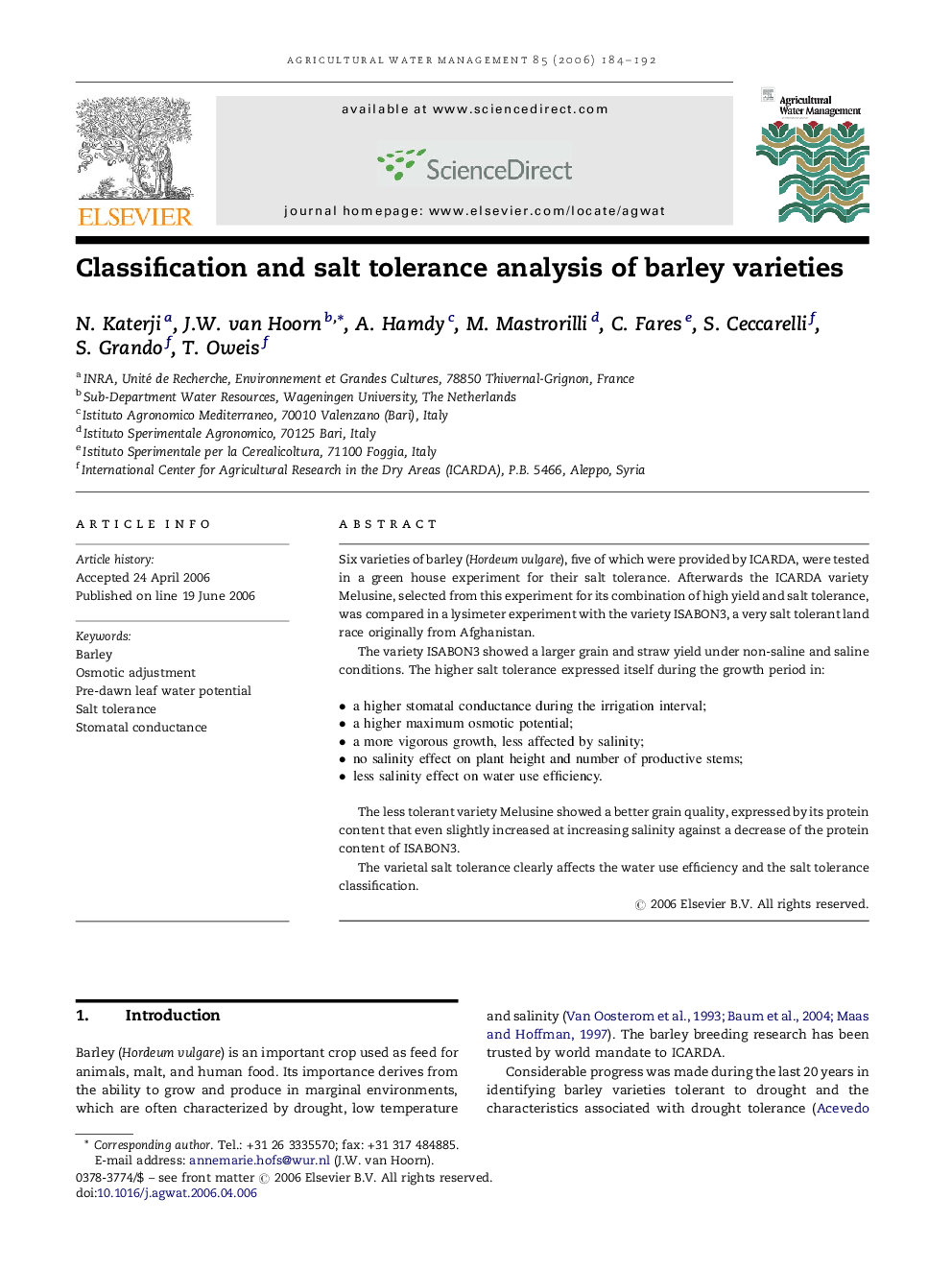| Article ID | Journal | Published Year | Pages | File Type |
|---|---|---|---|---|
| 4480479 | Agricultural Water Management | 2006 | 9 Pages |
Six varieties of barley (Hordeum vulgare), five of which were provided by ICARDA, were tested in a green house experiment for their salt tolerance. Afterwards the ICARDA variety Melusine, selected from this experiment for its combination of high yield and salt tolerance, was compared in a lysimeter experiment with the variety ISABON3, a very salt tolerant land race originally from Afghanistan.The variety ISABON3 showed a larger grain and straw yield under non-saline and saline conditions. The higher salt tolerance expressed itself during the growth period in:•a higher stomatal conductance during the irrigation interval;•a higher maximum osmotic potential;•a more vigorous growth, less affected by salinity;•no salinity effect on plant height and number of productive stems;•less salinity effect on water use efficiency.The less tolerant variety Melusine showed a better grain quality, expressed by its protein content that even slightly increased at increasing salinity against a decrease of the protein content of ISABON3.The varietal salt tolerance clearly affects the water use efficiency and the salt tolerance classification.
